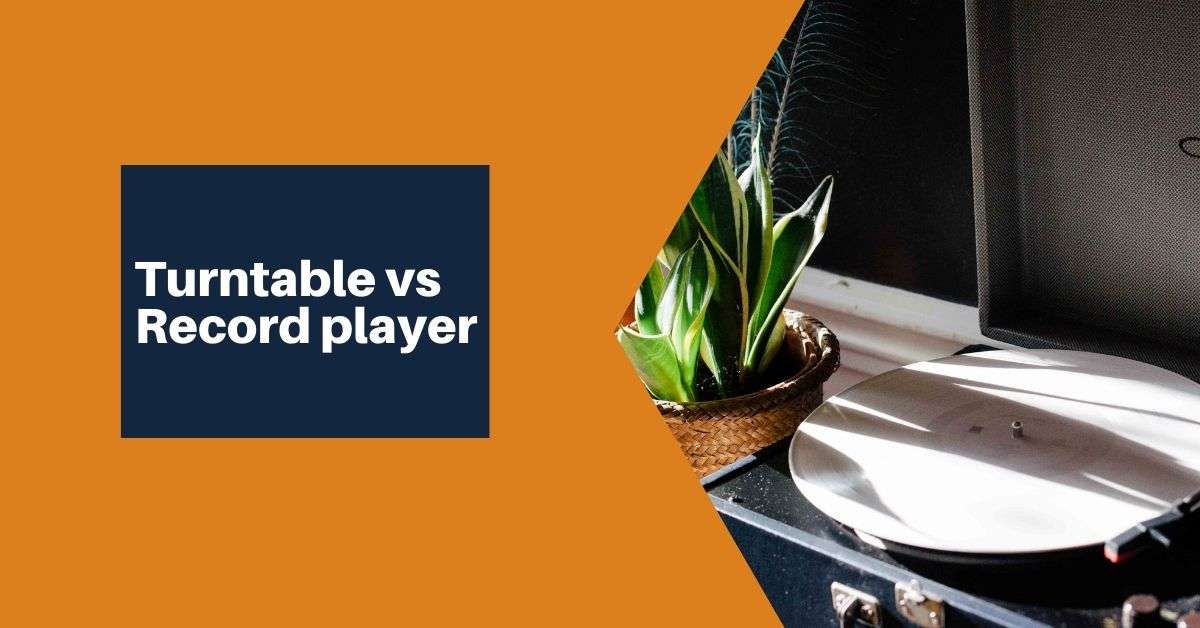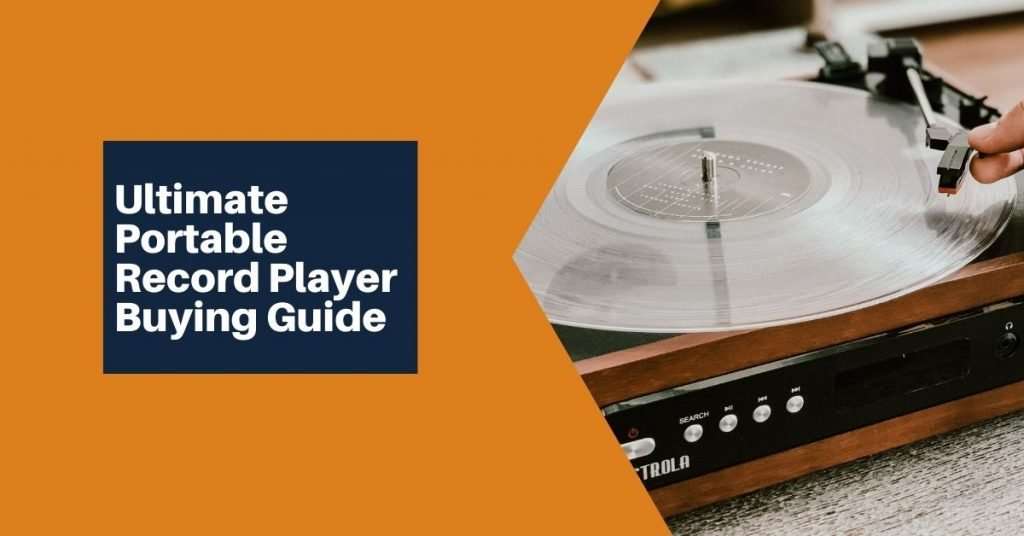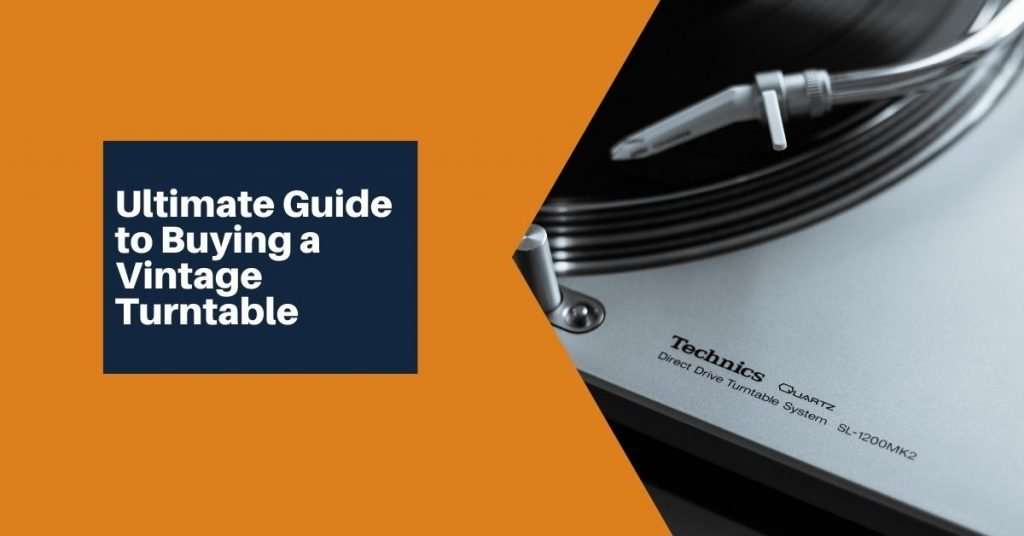Nothing is simple in the world of vinyl. If you haven’t figured that out by now, you’re about to. Exhibit A: Difference between a turntable vs. record player. You might think the terms can be used interchangeably… they both play vinyl records, right? Wrong.
Table of Contents
- Is there a difference between a turntable vs. record player?
- What is a turntable used for?
- What are record players used for?
- Why should you get a record player or turntable?
- Can you use a record player as a turntable?
- How are record players and turntables similar?
Is there a difference between a turntable vs. record player?
There’s a drastic difference between a turntable player and a record player. While both do share some similar qualities like having a tonearm and playing vinyl records, the application and use of each player satisfy different sound needs.
Let’s dive in…
What is a turntable used for?
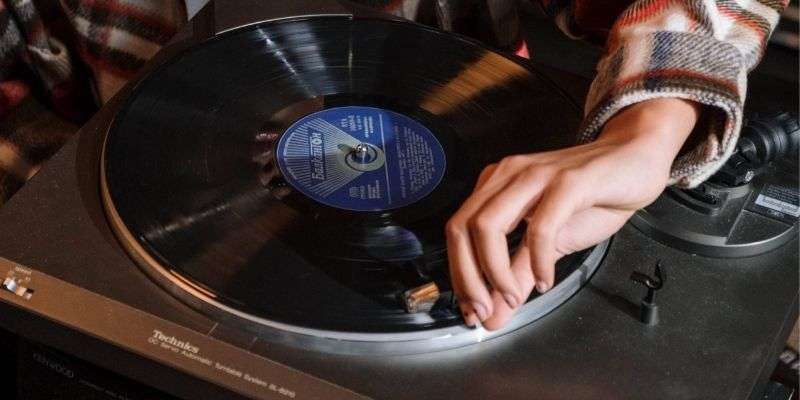
In its simplest form, a turntable is a standalone unit designated with the simple function of spinning a vinyl record at one consistent rate. In addition to this, turntables have a tone arm attached to them with a phono cartridge (also known as the needle or stylus) that rides over the top of the tiny groove carved into the vinyl record and passes that signal across a wire… and that’s where it ends. The only function of a turntable is to spin the record and pick up the electrical signal.
I know you might be thinking that sounds a whole lot like record players. This is where the confusion often lies. A turntable does not have an amplifier and speakers attached to it. It is a singular system designed to simply play records, not amplify them. That’s where phono preamps, stereo receivers, and external speakers come in. For more information on this, read our turntable setup guide.
What are record players used for?
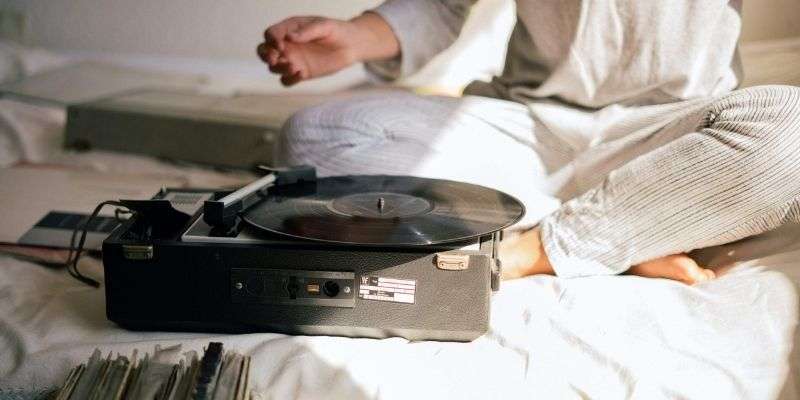
The initial function of a turntable and record player is the same, to spin a vinyl record. Where they differ is they are fully independent systems, meaning they have an amplifier and speakers built-in. When you play a record on a record player, you do not need any additional piece of equipment to hear the sound.
Record players come in various shapes and sizes. You might be familiar with the large record player consoles that were popular 50 years ago. Nowadays, record players are still around, but just in different forms. There are Bluetooth record players, portable record players, and modern entertainment centers with built-in speakers that play records in a single system.
Why should you get a record player or turntable?
There are a few pros and cons between record players and turntables. While one person might prefer one or the other, there really is no right or wrong system to purchase. Both have their own unique benefits and drawbacks. Read below as well discuss the pros and cons of a turntable vs record player.
Pros of Record Players
- Cost-effective: Many record player systems can be had for under $50.
- Portable: Since a record player is an everything-in-one unit, they’re very easy to move around and transport as opposed to multiple heavy components.
- Added Functionality: Many modern record players have added functionality such as Bluetooth speakers, CD player, radio, and even and phone chargers.
- Style: Many folks like the visual aesthetics of the old console record players.
Cons of Record Players
- Lesser Sound Quality: Record players have been known to produce a lower quality of sound compared to turntables because none of the parts can easily be changed and the factory cartridge and stylus are usually of lower quality.
- Damage to Records: Record players have been known to add unnecessary wear and tear to vinyl records over time. This is due to these systems being less calibrated than proper turntables. If you value your record collection, stay away from a record player!
- No Upgrade Potential: If you’re someone that enjoys gradually improving your vinyl setup, a record player would not be for you. Since everything comes pre-built into the machine, you can slowly piece together a nicer setup without inevitably getting a turntable instead.
Pros of Turntables
- Sky’s the Limit With Sound Quality: Not saying that every turntable is worth purchasing, but there are some very high-quality turntable systems design to precisely play vinyl records. Typically, when it comes to quality and turntables, you get what you pay for.
- Easily Upgraded: If you like improving your sound setup, a turntable is the perfect device for you. There are various components you can upgrade from the stock factory unit. A tone arm, cartridge, or needle can all be purchased for noticeable sound improvements.
- Adjustable: A turntable typically comes with settings such as tracking speed, anti-skate, and balance weights you can fine-tune. This is why turntables are exclusively used by DJs and other electronic and hip hop artists during live concerts.
- Unique: People still use turntables from the 1970s and 80s with great success. This means there are a plethora of options when it comes to customizing your setup with the perfect players for your needs, both sonically and visually.
Cons of Turntables
- Require Upkeep: While the maintenance isn’t generally too frequent and repairs are cheap, a turntable does require general upkeep and maintenance with requested use. Cartridges will need to be changed. Depending on if your system is a direct drive or belt drive, a belt or motor could need to be replaced or oiled.
- More Expensive: If you just want to play your record and don’t care about sound quality, a turntable is not for you. The units themselves are more expensive and that not including the extra phono preamp, stereo receiver, and speakers you’ll need to purchase just to hear sound.
- More Complicated: As some of the items above alluded to, a turntable is a different animal. You need to know your way around or at least know where to look online in order to fix and adjust things yourself.
Can you use a record player as a turntable?
The short answer is yes for the reasons described above. A record player usually has an audio output that would allow you to connect a wire to a stereo amplifier or speaker. This is not to say a record player is a good substitute for a turntable. The difference in audio clarity will likely be noticeable, even if the same exact speakers or stereo are used.
How are record players and turntables similar?
We’ve talked so much about the difference between a turntable and a record player, let’s talk about what makes them similar. Firstly, both tackle the prime initial objective of sound reproduction. While yes, a turntable can’t amplify the sound until the signal is converted to line level, if you were to hook it up to a speaker you’d still hear a very faint, quiet sound of the music playing!
Both also have similar components: a needle and stylus that ride on the surface of the vinyl record. The little groove your needle is gliding across is actually an analog sound wave recording!
Lastly, each device is used to enjoy music and that’s something truly amazing! Interested in finding out more about entry-level turntables or more feature-rich audiophile turntables? Check out our 2023 buyers guides!
Related Posts

Lead Editor / Owner
After beginning his career in the video and audio recording industry, Andrew started HiFi Hippo to share his knowledge and passion for vinyl and vintage audio with other readers.
